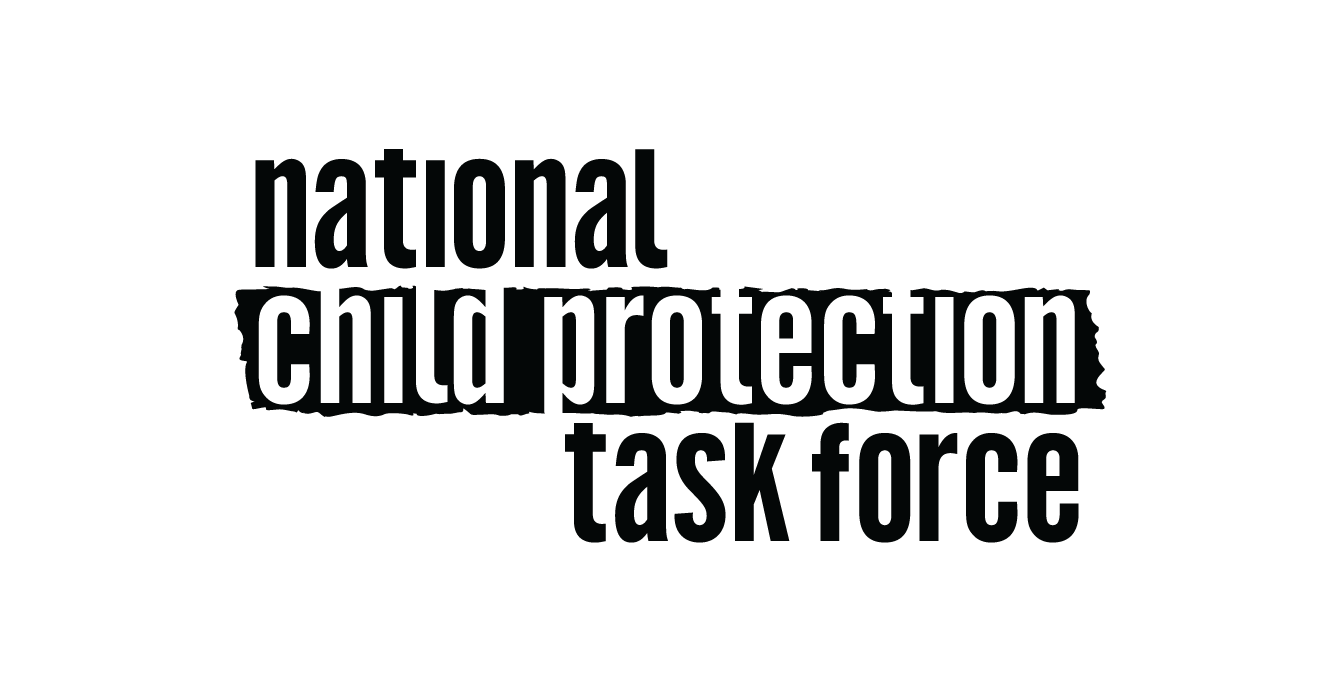the national child protection task force
the ncptf only works missing cases directly with law enforcement
We support investigators directly to give them the support and resources needed to find kids fast.
Want to know more about why our task force only works directly with law enforcement?
Here, you'll find practical advice to empower you during this difficult time
A letter from CEO Kevin branzetti:
I can only begin to imagine the depth of your worry and pain at this time. My heart goes out to you. The NCPTF does not conduct investigations independent of law enforcement– rather, we work alongside them. The reason for this is that we want to help police bring missing kids home quickly and experience has shown that most effective way for us to do that is to support the law enforcement professionals working these important cases. For that reason, we provide our rapid response assistance to law enforcement at no cost.
I had a 29 year career in law enforcement prior to founding the NCPTF. I have worked with many families of missing children and I understand that when a child goes missing it can be hard to think straight. I would love to take this opportunity to offer some practical reminders to help you advocate well for your missing person while working with law enforcement.
- Taking the step to file a missing person’s report is crucial. To prepare for this, gather all the facts: when and where your child was last seen, any particular circumstances that might be relevant, a list of friends and relatives who might have insights into your child’s whereabouts, and any other details that come to mind.
- When you speak with the police, it is vital to be as open as possible. Now is not the time to withhold information, no matter how sensitive or potentially embarrassing. Every detail you share could be the key to finding your child.
I must share something about us police officers… We aren’t always the best at showing empathy and we might come across as distant, or even cold. Please understand this doesn’t reflect on our commitment to your family member’s case or our concern for the child. It’s more about our approach to doing this job well, which admittedly, can definitely lack the warmth you deserve in such moments. Asking us to consider “What if it were your own child?” can help bridge that emotional gap and will hopefully invite a more compassionate response.
And after you meet with the police, please inform them about the NCPTF and our readiness to offer free support on their investigation. Our goal is to ensure they have every resource necessary to bring your child home safely– all for free. We work with investigators all over the country and there is never a charge for our services.
And last but certainly not least, it is important to understand that you need support through this. Reach out to trusted family, friends, and even support organizations like the ones listed below. You are not alone. I truly hope the best for you all during this tremendously hard time.
Sending heartfelt empathy and support,
Kevin Branzetti
Chief Executive Officer | National Child Protection Task Force
What to do when a child goes missing
Report to law enforcement
Immediately call 911.
report to ncmec
when you can't find your child in your home
If your child is missing from home, search through:
- Closets
- Piles of laundry
- In and under beds
- Inside large appliances
- Vehicles – including trunks
- Anywhere else that a child may crawl or hide
when you can't find your child in a store
When you call law enforcement
first steps: call 911, then contact NCMEC when a child is missing
Our friends at the National Center for Missing & Exploited Children work with families, victims, private industry, law enforcement, and the public to assist with preventing child abductions, recovering missing children, and providing services to deter and combat child sexual exploitation.
SUPPORT FOR
FRIENDS and family of missing children
Our friends at Cleveland Missing are a great resource, offering support for families and friends of the missing. You do not have to be an Ohio resident to work with their organization.
2937 West 25, Cleveland, Ohio, 44113
sylvia@clevelandmissing.org
2937 West 25, Cleveland, Ohio, 44113
sylvia@clevelandmissing.org
What to expect next
Dealing with the Police
- Openly Spell Out Any Extenuating Circumstances: Report anything additional that could help the police, including learning disabilities, depression, known communication with strangers online, illnesses and medications, age gap relationships during teenage years, prior victimization, and a history of past disappearances.
- Be Radically Honest with the Investigators: Every investigation needs a full accounting of the details in order to move forward smoothly. Be completely honest – and don’t leave out any details, even if they’re sensitive.
- Stay Organized: Keep a notebook or digital document with details of all interactions with law enforcement, including names, badge numbers, and the content of conversations.
- Follow Up: Stay in regular contact with the investigators handling your case. Don’t hesitate to reach out for updates or to provide new information.
- Understand the Process: Ask the police to explain their process and what you can expect. Understanding the steps they’re taking can help you feel more involved and informed. Expect that they cannot share case specifics with you.
- Establish Rules for Communication: Once the investigation is underway set up a schedule for communication– verbalizing “Let’s talk every day at 10am” so that find out who else you’ll be communicating with in relation to your case
- Work Together: Work with the police, despite how frustrating it is to wait for answers. Ask the officer “what would you do if this was your child?” to remind them of your humanity and foster empathy.
What to Expect from Law Enforcement
- Initial Response: Law enforcement should take your report seriously and begin an investigation immediately. They may issue an Amber Alert if certain criteria are met. There is no established waiting period for an investigation. It is when there is a reason to believe the child is missing.
- Investigation: The police may conduct searches, speak with witnesses, and utilize media to help find your child. They might also work with other agencies and utilize resources like the National Center for Missing & Exploited Children (NCMEC). Use the resources (posters) provided by law enforcement. Do not post on social media or conduct media interviews without first communicating with the police.
- Communication: While the police may not be able to share all details of the investigation, they should keep you informed of significant developments.
Coping Emotionally
- Seek Support: Reach out to family, friends, or community support groups. It’s essential to have emotional support during this time. Therapists or counselors specializing in trauma can also provide critical emotional support.
- Self-Care: It’s easy to neglect your health during this crisis. Try to maintain a routine, get enough rest, eat healthily, and find small moments for self-care. Your strength is vital in the search for your child.
- Express Yourself: Find a safe outlet for your feelings, whether it’s through talking, writing, or another form of expression. Keeping a journal can be a therapeutic way to process your emotions.
- Find Qualified Support Organizations: Seek out organizations who are established to help families of missing children. One of our favorites doing great work with families nationwide is Cleveland Missing.
I need help with a missing child, but i'm not law enforcement
Unfortunately, we are only able to offer our services directly to law enforcement. Our task force serves as a support to law enforcement facing complex child-focused cases and the services we provide are specific to investigations conducted by law enforcement. We are only able to provide intelligence, resources, and support directly to the agency working the case.
What can I do?
Invite the investigator assigned to your case to contact the NCPTF for assistance.
And if you or someone else are in immediate danger, please call 911 or your local police or visit our Get Help page for more specific support resources.
what is your process?
When a case is submitted our team of investigators reviews the submitting officer's credentials and all provided case details.
We activate our investigative team who work to find and verify patterns that tell a more complete story about the missing child's whereabouts and the people around them. Actionable intelligence findings are reported to the investigating officer.
We also assess what technology solutions would help the investigator and facilitate access to a suite of cutting-edge technology resources based on each case's unique needs.
Then we activate our network to surround the investigator with access to the information that helps them swiftly locate and recover missing kids to safety. And we do it all for free.
what does an investigator get from the ncptf?
An Intelligence report is created which includes a case summary and actionable intelligence findings to help investigators cut through the noise and narrow down viable leads.
This report allows for the investigator to follow each person's trail as they conduct a thorough investigation. The NCPTF works closely with the investigator to provide support at every stage of the process, ensuring every investigation has access to a team of experts, cutting-edge technology, and a vast network of protectors ready to step up and help bring #JustOneMore missing child back home.
how can i get law enforcement to work with ncptf?
Share this website with the investigator assigned to the child's case. Our team takes a collaborative approach, working with each investigator to provide intelligence, support, and access to technology that would otherwise be cost prohibitive in most departments.
We're a 501(c)3 nonprofit organization created to give investigators a leg up on solving child-focused cases.
We take pride in helping investigators solve cases and restore justice in their community.



